The Babylon 5 Games You Forgot Existed
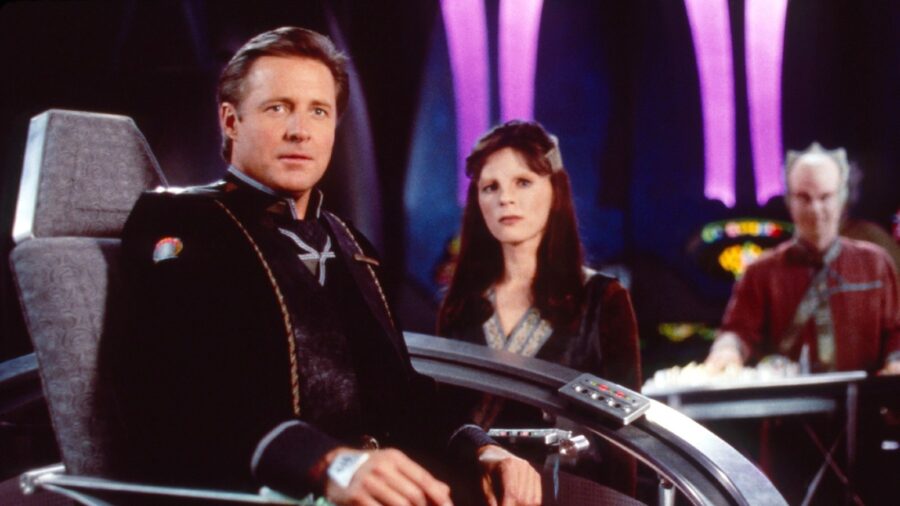
Babylon 5 never broke into pop culture to the level of Star Trek, Star Wars, or even Stargate, but the cult hit sci-fi series accomplished the rare feat of telling a complete story from start to end, earning a legion of fans even today. Despite the lower profile, J. Michael Straczynski’s sci-fi epic still had action figures, including Londo and even Micro Machine versions of the spaceships. What you either forgot or never knew about in the first place is the Babylon 5 tabletop games, from a collectible card game to miniature war games; it’s an amazing lineup for a show that struggled to stay on the air.
Babylon 5 Wars
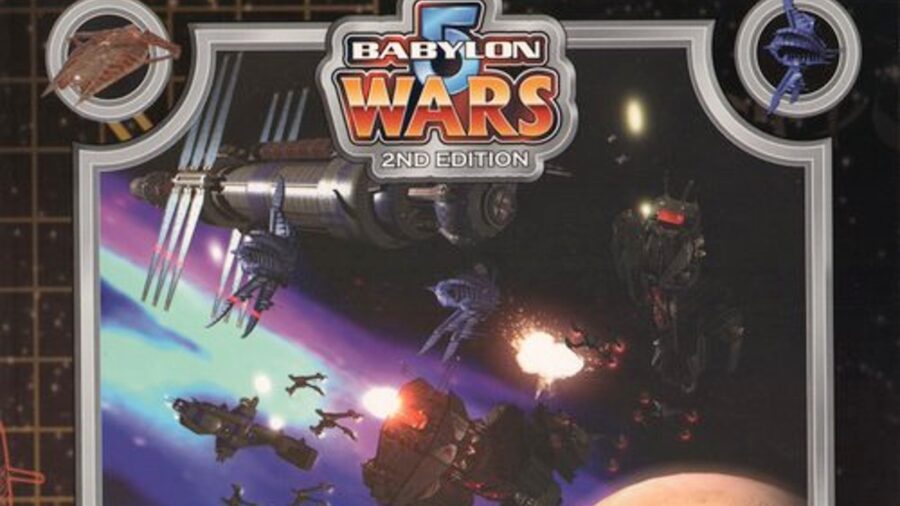
Released in 1997, right before the final season aired, Babylon 5 Wars puts two players against each other as different fleets, including the Vorlorns, Centauri, Shadow, and Minbari. From small-scale dogfights to fleet battles with tons of gorgeous miniatures, the game system was ahead of its time and still holds up today. In a perfect moment of symmetry, compared to the modern Star Wars: X-Wing, the older Babylon 5 game has more realistic movement using Newtonian physics, more options for targeting enemy systems, and a mechanic for shooting down incoming enemy fire.
In fact, Babylon 5 Wars was such an accurate representation of the series that writers used it as a reference for the last two seasons.
A Call To Arms: Babylon 5 Space Combat
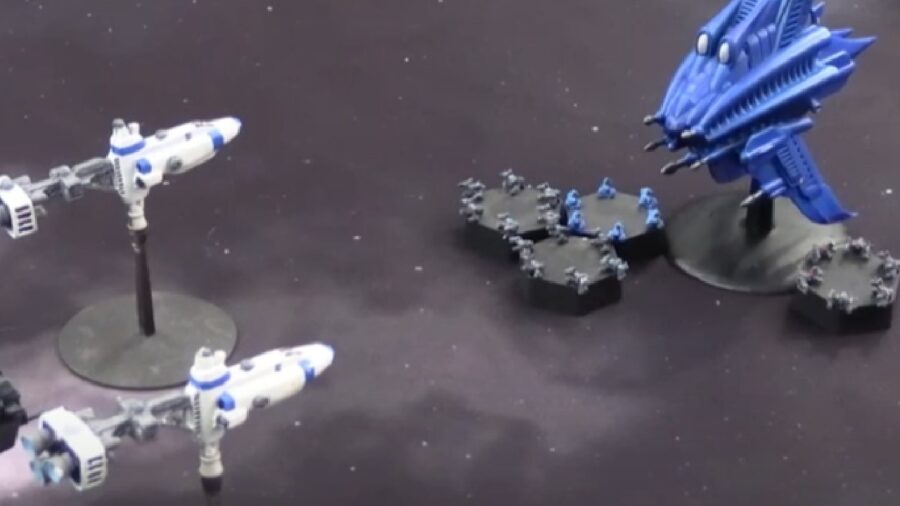
In 2004, years after Babylon 5 went off the air, A Call to Arms: Babylon 5 Space Combat took everything that Babylon 5 Wars did right and made it bigger. The awe-inspiring scale of this game lets you re-enact battles from the show and then go beyond, with massive fleets from every race represented in highly accurate rules that can be very overwhelming for new players. Still, if you ever wanted to have the Vorlon take on the Minbari or the Shadow go against the League of Non-ALigned Worlds, this game lets you do it.
Babylon 5 The Board Game
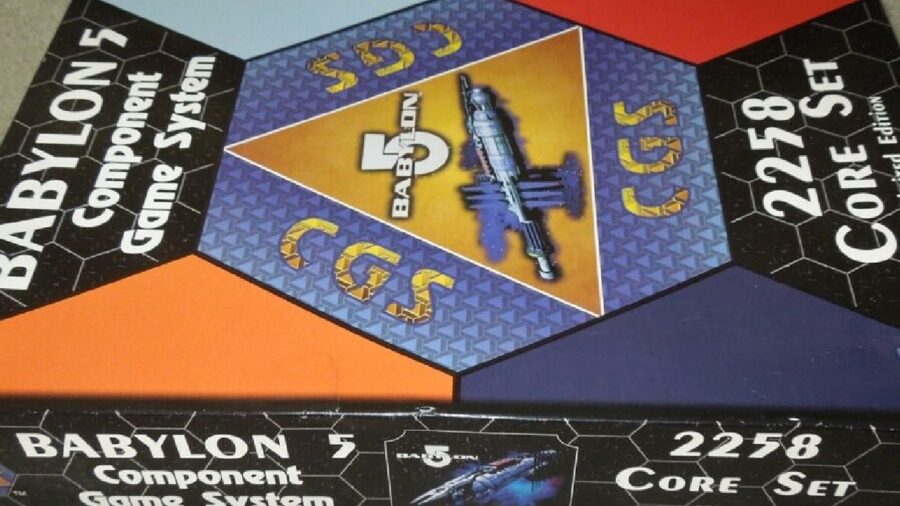
Babylon 5 The Board Game offers a different take on the show. Each player controls a different faction, colonizes planets, collects resources, engages in negotiations, and, if necessary, deploys the fleets. If that sounds like every other 4X sci-fi board game out there, you’re right, but if you can’t trick anyone into Twilight Imperium, this is a good way to trap your friends for hours of Centauri politics.
The first version, called Babylon 5 Component Game System, came out in 1997, with the 1998 edition adopting the much better-sounding name of Babylon 5 The Board Game. Using tiles, each game plays out differently based on how the universe develops as the fog of war is lifted, with multiple paths to victory.
Babylon 5 Role-Playing Game
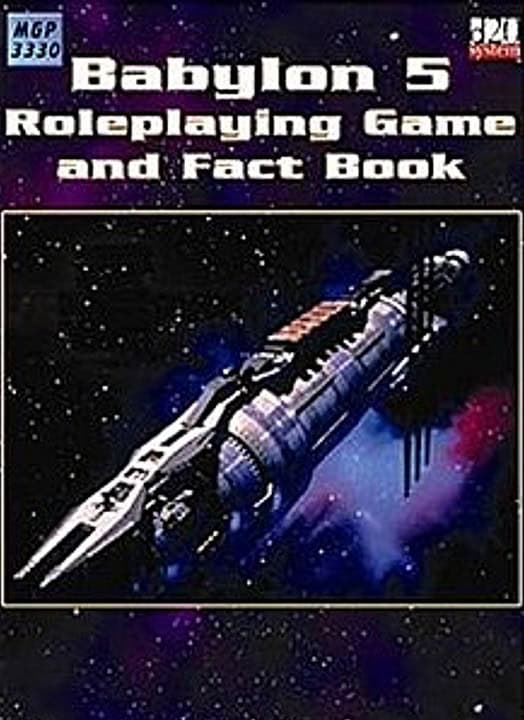
Based on Wizard of the Coast’s d20 system (aka the Dungeons and Dragons 3rd Edition framework), the Babylon 5 Role-Playing Game attempted to capture the spirit of the series by placing emphasis on role-playing, subterfuge, and avoiding combat. The different races are fairly accurate to the show, but in the spirit of game balance, there have been a few needed adjustments, but that doesn’t apply to the classes.
True to the world of Babylon 5, the telepaths (Psi Corps) are capable of game-breaking feats, but the inclusion of an episode-by-episode breakdown of Season 1 for use as a campaign module makes up for the frustrating game balance.
Babylon 5 Collectible Card Game
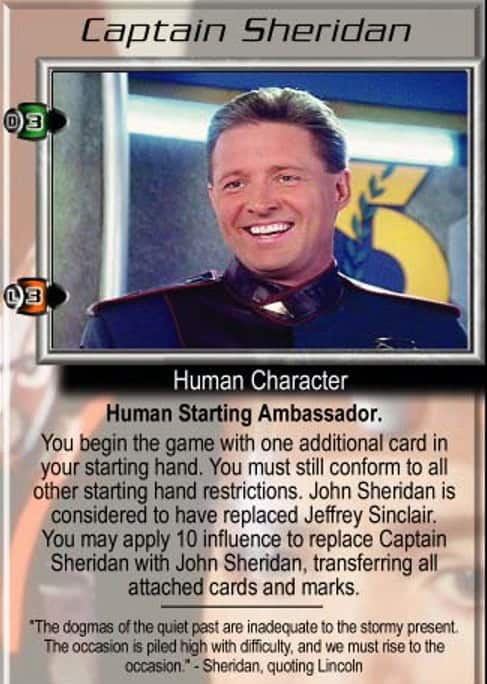
In the 90s, collectible card games were hot thanks to the rise of Magic: The Gathering, but the Babylon 5 Collectible Card Game broke the typical two-player mode thanks to its multiplayer design, from the ground up, for up to 20 players. Fitting for the series, the gameplay allowed for lots of tabletop politics, with players able to create decks based on different factions from the show. The game centers on the ambassadors, with everything else, from combat to spaceships and agendas, designed to grant you more influence, which could be spent to muster power, recruit characters, and launch secret plans.
The Babylon 5 Collectible Card Game was a huge hit, at one point considered to be one of the best CCGs of all time, thanks to its focus on politics, subterfuge, and embracing multiple players. Even today, you can find groups that still support it with fan-made sets and unofficial online versions. Best of all, though, is that the final expansion was based on Crusade, letting players create better storylines with the underrated spin-off’s unique setting than the show’s studio decided to air.












